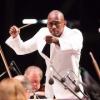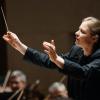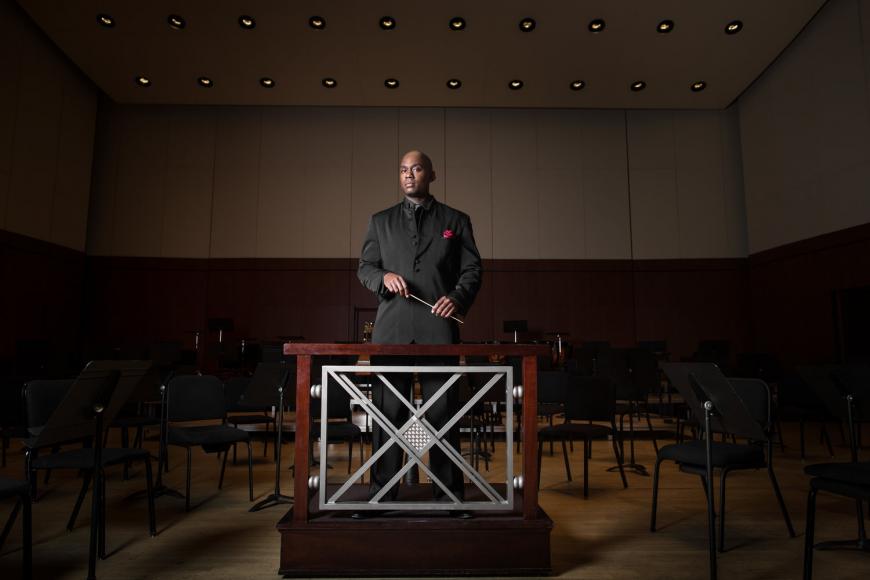
For Joseph Young, music director and conductor at Berkeley Symphony, the past year and a half has involved finding new creative outlets like painting, cooking more, and building bookshelves and coffee tables — all the kinds of activities that are normally off the table for busy, traveling musicians. It’s made him ever more grateful for the time that he does spend in front of musicians making music. “I’m the only one [in the orchestra] that makes music that makes no sound,” Young says. The pandemic urged him to try “to navigate around that and … be creative about how to share [his] passion of music to a community that [he didn’t] get to see.”
On Wednesday, Aug. 4 at 7:30 p.m., Young and Berkeley Symphony are marking a return to live music with their “Reopening Concert” at Orinda’s Bruns Amphitheater. The program will feature familiar fan-favorites like Rossini’s Barber of Seville Overture and Bizet’s Carmen Suite No. 1, alongside new works like Jessie Montgomery’s string ensemble piece Strum and Brian Nabors’s orchestral piece Iubilo. It is the first time Berkeley Symphony is performing live since February 2020.
The concert will be interspersed with fragments of Beethoven’s Egmont, set to passages from Shakespeare plays including King Lear, The Winter’s Tale, and more. Young wanted to champion Egmont’s archetype of the man who sacrifices himself for others but found the words that Beethoven used “stodgy.” He invited Cal Shakes to collaborate and stage the music. “I wanted to create this narrative that even though we’ve been through a lot, we’re going to get through this together. … It’s going to just be a beautiful weaving of poetic words with great music,” Young says.
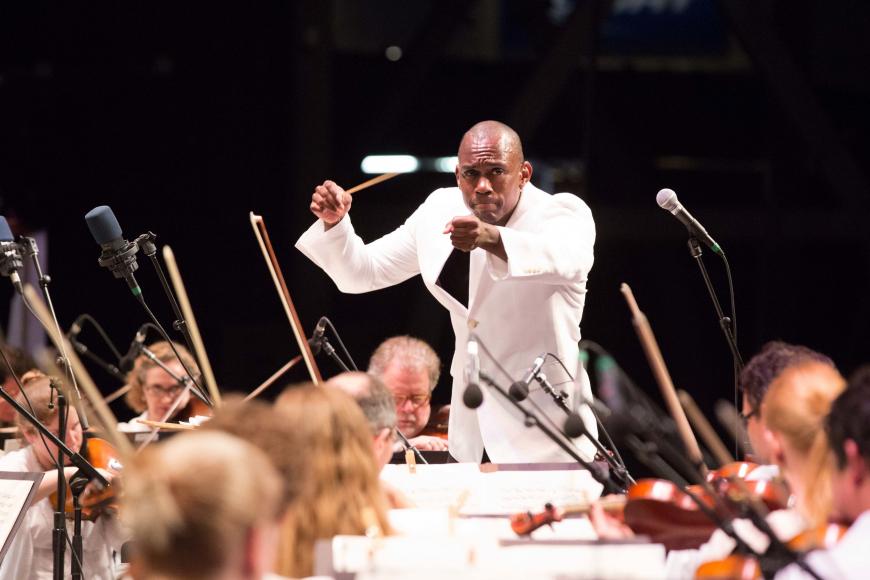
The next day — Thursday, Aug. 5 at 5:30 p.m. — Young will lead a group of string players from the orchestra at the Downtown Berkeley BART Plaza in an eclectic program for a free community concert. It will be the third installment of a series that launched prior to the pandemic and hopes to catch the attention of devotees and passersby alike in a public and casual environment.
Although Young could no longer host rehearsals or concerts, he spent much of the pandemic connecting with audiences and musicians in new ways. Berkeley Symphony partnered with the Berkeley Public Library on the program “Reading Is Instrumental” — which showcased Bay Area celebrities like author Maxine Hong Kingston, comedian Andy Samberg, and Young reading children’s books accompanied by music played by orchestra musicians. Young also signed up to do more engagements with “people who just wanted to hear [his] story.” He says, “I enjoyed connecting with young kids early in the pandemic.”
During the pandemic, Young continued teaching at the Peabody Conservatory, where he serves as artistic director of ensembles. Usually, teaching conducting effectively depends on establishing physical presence; moreover, a student gets live feedback as a pianist or quintet plays in front of him or her. On Zoom, conducting lessons looked quite different: Students sang excerpts while moving their hands to mimic the sound they would hear, and feedback had to be communicated over a screen. But Young thinks that these Zoom lessons had their silver linings: “It gave us time to actually go more in depth on the score — talk about performance practices,” he says. The moderated tempo of the year allowed Young to share more theoretical insights on music with students and spend dedicated one-on-one time with them.
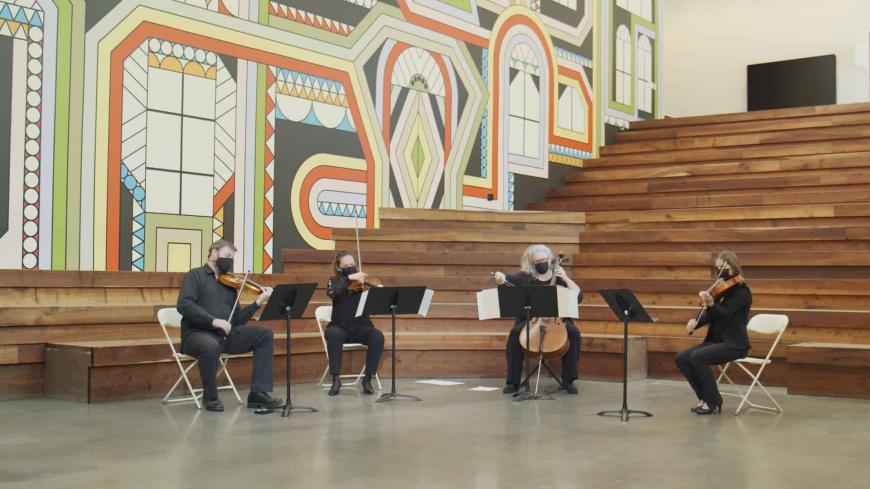
Berkeley Symphony’s return to performance will segue into the orchestra’s 50th season, which will be announced later this month. Young emphasizes that the orchestra has spent much of the pandemic thinking about where to take the institution next. “I think … rethinking and retelling our story, reconceptualizing how we put concerts together — and where we put concerts together — are so important in the direction of where we’re going,” Young says. He adds that bringing fresh and innovative voices to Berkeley is a priority and that the effort needs to be paralleled by designing “diverse ways of presenting a symphony concert.”
Are there new ways to look at the words to Beethoven’s Ninth Symphony, he asks rhetorically? Do we always have to do it the way that Beethoven heard it? Can we make words that are relevant to us? He references a mentor who spent a year generating different translations and poetry for Beethoven’s Ninth approvingly.
Behind Young’s honorable but familiar commitments to diversity and community outreach is his creative passion for gathering new audiences and putting together programs featuring music new and old. “I like to make sure that everyone can share how to create a route of relevance to this music that everyone says is old and stodgy but for me is always something new — something that can connect to our everyday life,” Young says.
“It’s my job to curate and connect the dots — for me, that’s always fun.”



